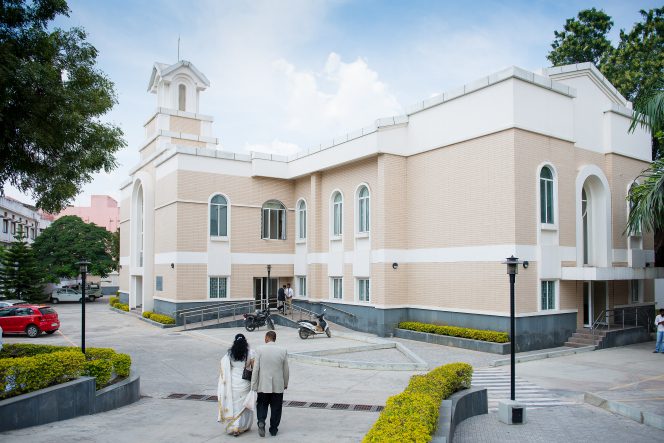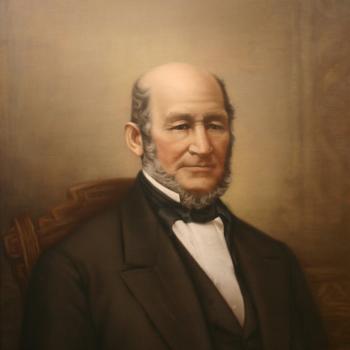
***
I would like to call your attention to a short but important article in the December issue of the invaluable magazine First Things, written by Brendan W. Case, who currently serves as the associate director for research at the Human Flourishing Program at Harvard’s Institute for Quantitative Social Science. It joins a very large and growing array of articles and studies that plainly seem to demonstrate the positive effects of religious belief and religious affiliation on the mental and physical heath of not only individual persons but communities and societies.
Dr. Case notes the alarming rise of “deaths of despair” in the United States. “Recent trends,” he writes, “are severe: Deaths of despair caused drops in overall life expectancy in the United States for three consecutive years (from 2015 to 2017), the longest period of decline since World War I.” Moreover, he explains, the Human Flourishing Program at Harvard University has “assembl[ed] a body of evidence that suggests that about 40 percent of the increase in suicides from 1996 to 2010 was attributable to declining religious participation.”
After offering some very arresting specifics in order to illustrate his argument, Dr. Case closes his brief article with this paragraph:
“Religion usually figures in American public policy as a civil liberties issue. But it is also a matter of public health. Public health officials should explore efforts to encourage religious participation, particularly among the millions of believers who don’t attend services. To their warnings not to smoke or drink to excess, our leaders should add a positive admonition: If you want to flourish, go to church.”
By the way, it scarcely needs to be explained to readers of this blog that I located the chilling article above, which provides yet another (redundant) example of the terrible harms inflicted by religion, in the almost infinitely capacious Christopher Hitchens Memorial “How Religion Poisons Everything” File©.
And, while glancing about in the Hitchens File©, I also came across these blood-curdling horrors:
“Afghan refugees receive kitchen kits from JustServe volunteers in Northern California”
“The Church of Jesus Christ of Latter-day Saints members help after Hurricane Ida”
***
Here’s a recent article by my friend and former neighbor Mark Stoddard that you might enjoy:
“The Romance Within Us Hath Had Elsewhere Its Star”
***
It’s entirely conceivable that the Supreme Court of the United States will overturn its own lamentable 1973 decision in Roe v. Wade within the relatively near future, thus returning the contentious question of abortion to where it had long rested — with the voters, legislators, and judges of the individual states:
Robert P. George, “Roe Will Go”
With that possibility in mind, I offer here a couple of quite relevant articles:
Charles C. W. Cooke, “The Secular Case against Abortion: What were you then? What are you now?”
***
Several years ago, there was a reference to this concept, advanced by S. Michael Wilcox, in my sacrament meeting. I liked it and it’s stuck with me, and thought that I would share with you an excerpt from an interview with him that’s available online:
Q: You’ve said, in essence, that God is sometimes, not always, but sometimes a “4th Watch God.”
Would you encapsulate and review the Biblical account and extract that principle for our listeners and seekers today?
Mike: The phrase “the fourth watch” comes from the account in Mark, and others in the New Testament, where the Savior during the day has fed the 5,000 and He sends the Apostles down to the Sea of a Galilee while He’s going to dismiss the multitude. Then He will pray, and the Savior will often pray a long time. So it’s late afternoon, early evening, when the Savior sends the Apostles down to the ship and they get in it and a storm comes up.
The phrase that Mark uses is “the wind was contrary to them and they toiled in rowing against the wind.” That expression is so fit for so many of us in our lives, I know in my own life, and I look at my children’s lives; we toil in rowing against the wind. There’s blessing we want but don’t have, there’s a trial we want over that isn’t over yet. In John’s account they row for about the equivalent for 75 football fields against the wind, and they’re discouraged, they’re tired. Hope is starting to wane. In Mark’s account I think one of the first things that really gives me comfort is that he says He saw them toil in rowing, He saw them. I’ve been to the Sea of Galilee a number of times and you can see the hills around the lake. I picture Him up there looking down on them, but they don’t know He’s looking down on them. Sometimes in our own lives He’s looking, He’s watching, He sees us toiling and rowing–we may not always realize that He sees us. And then it says that in the fourth watch of the night He came to them walking on the water.
The Hebrew day is roughly divided into 12 hours; six in the morning, roughly, was the first hour, so the sixth hour is noon, the ninth hour is about three in the afternoon. The night was divided into four watches; roughly six at night to nine at night, nine to midnight, midnight to three, the fourth watch–three in the morning to sunrise. And it’s in the fourth watch that He comes.
So I often say to myself and to others, we worship a Fourth-Watch God. In many areas of our lives He seems to allow us to toil in rowing against the wind. There must be something good in developing spiritual muscle. The problem is that I’m usually a first-watch person, or a second-watch person. And when the third watch starts, and He’s not come and my trial is not over and my blessing is not arrived, we may begin to make some assumptions that are dangerous. We may begin to assume that He’s not there, or that He’s there but doesn’t care, or He’s not listening, or maybe the most dangerous assumption ‘I’m not worthy.’ And I think the correct assumption I try to make–in my own fourth-watch times or with my children or friends–He’s there, He listens, He cares, we’re as worthy as we can be. We’ve not yet reached the fourth watch, and when we reach the fourth watch, He will come.
Now I think in one area He’s a First-Watch God, and that is whenever I ask for forgiveness. Then it’s a first watch, He comes immediately to give forgiveness. But in many other areas of life I need to endure until the fourth watch.
If you’re interested in further reflection on this topic, the concept of a “fourth-watch God” is included, online, in a BYU Education Week talk that Brother Wilcox delivered in 2005. There’s also an audio CD version: http://www.amazon.com/The-Fourth-Watch-Receiving-Unanswered/dp/1590382927












